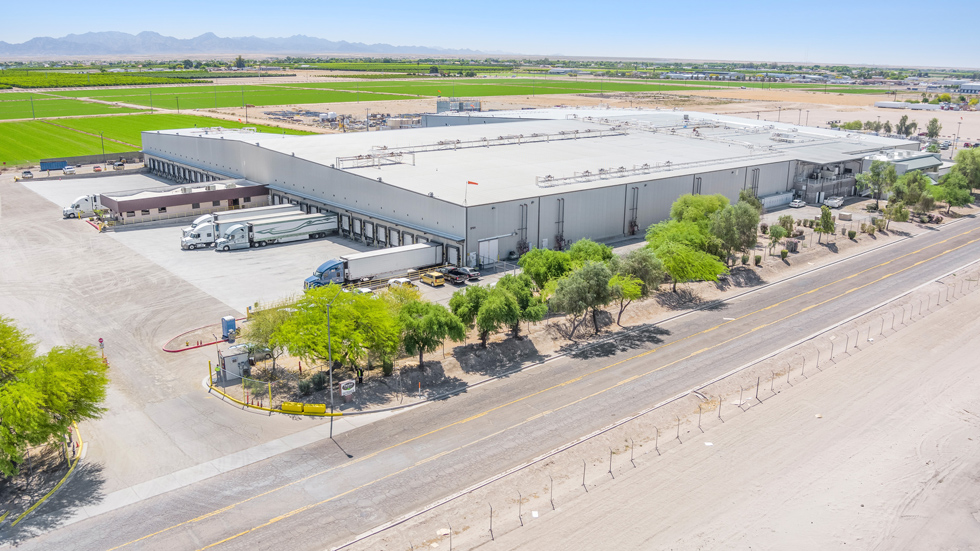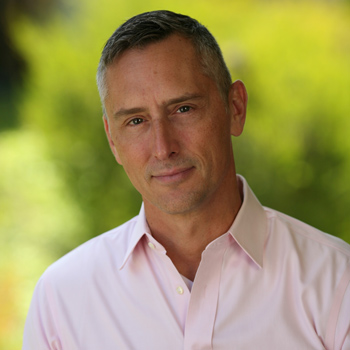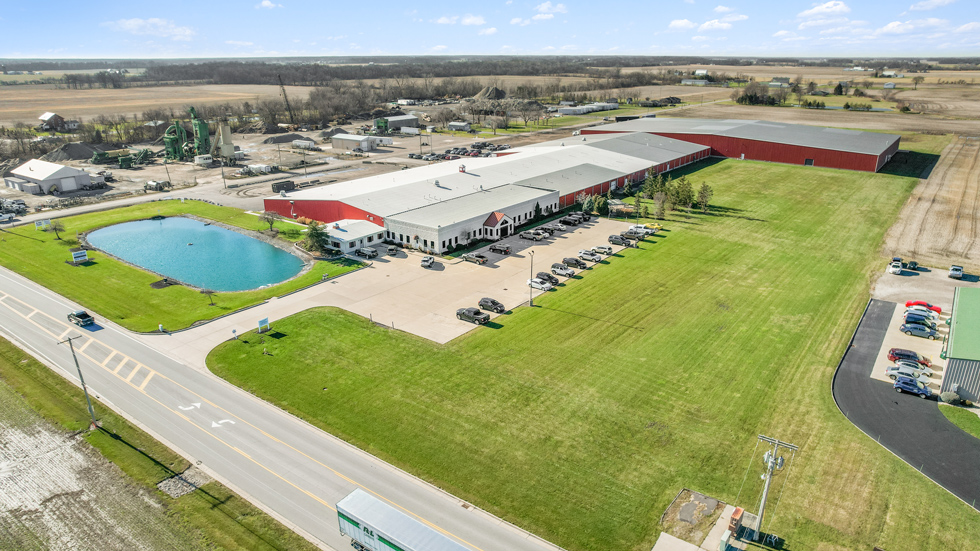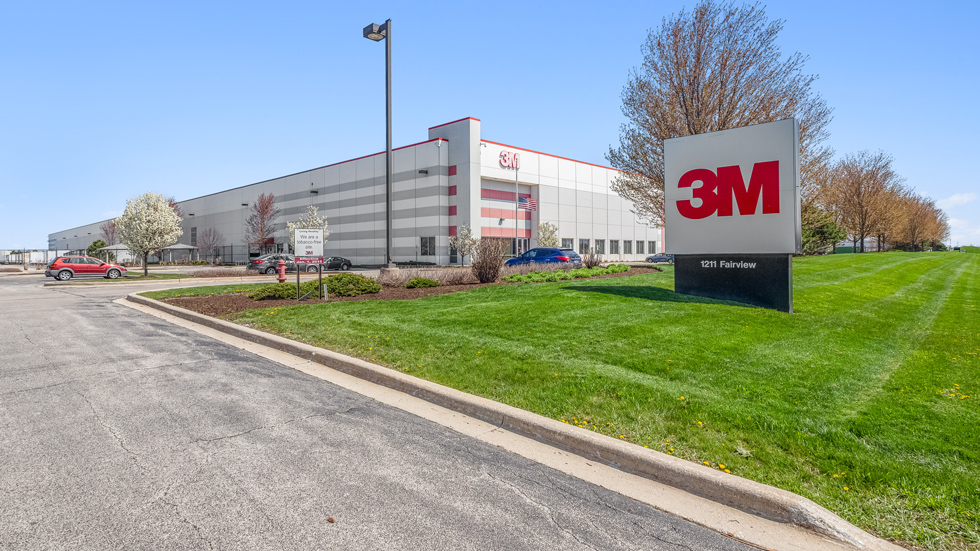With its IPO earlier this year now in the rearview mirror, Modiv Inc. (NYSE: MDV), which traces its legacy to a real estate crowdfunding company launched in 2015, continues to evolve as it sharpens its focus on real estate assets net leased to industrial manufacturing and food production businesses.
Until 2021, Modiv was known as Rich Uncles, an external manager of public, non-listed net lease REITs that raised all of its investment capital from individual retail investors.
“When I joined the company in 2018, my specific mission was to transform the company into an even higher quality investment vehicle worthy of being publicly traded,” says Modiv CEO Aaron Halfacre. “Within the first year, we were successfully able to merge two smaller REITs into one larger REIT, internalize the management team, and assemble a high-caliber board of directors. After that we then formally became Modiv.
Since that time, Modiv, whose name reflects its intent to provide investors with Monthly Dividends, has continued to take transformative steps to make itself a REIT worthy of investors’ dollars and respect.
In the early days, the company acquired net lease assets primarily in California and across all retail, office, and industrial property types.
“As we have evolved, we have methodically reduced our office exposure, with an intermediate-term goal to have no office assets and to be focused nearly exclusively on acquiring industrial manufacturing and food production assets,” Halfacre says. “We differentiate industrial manufacturing from that of the more common industrial distribution sub-sector and believe our investment focus is unlike that of most of publicly traded REITs.”
Believing that the global pandemic and international conflicts have highlighted the vulnerability in the off-shore, just-in-time supply chain model, Modiv’s strategy involves the reshoring of manufacturing capabilities as a key long-term economic theme domestically and a primary investment strategy as it looks to the future.
Working Toward Pure-Play
Despite its focus on industrial manufacturing and food production assets, as a legacy portfolio Modiv has not yet become a pure-play portfolio as it continues to hold retail and some office assets
“The majority of our portfolio is industrial, and we expect it to be the vast majority in a relatively short window of time,” Halfacre says. “The change in the portfolio, which is really the next logical step in our transformation, is the result of disciplined asset sales and purchases.”
From an acquisition perspective, the company seeks tenants who are producing meaningful products to the U.S. economy, with a particular focus on infrastructure and core demand goods that are less susceptible to consumer discretionary volatility.
“When we identify tenants with the right profile, we then look to make sure that the particular property we are underwriting is critical to that tenant’s business and that it is very unlikely for the business operations to be relocated,” Halfacre says. “From there, we dig deep into the credit of the tenant’s business to ascertain their financial strength and long- term ability to pay rent on the asset we are acquiring.”
Once the analysis of the tenant is completed, Modiv financially models the rental scenario and forecasts it into a full balance sheet and income statement to see how that individual property would change the nature of its overall financial profile.
“We make sure each acquisition is accretive and our focus on accretion is based on fully diluted AFFO per share growth over a minimum three-year horizon,” Halfacre says
Unlike industrial distribution properties that can, and are, readily built on a speculative basis, the industrial manufacturing facilities Modiv looks to acquire often have been in existence for decades and were purpose-built for the business operations that are housed in them.
“Most of these facilities have large industrial equipment that is not readily relocated, and the job force employed at these facilities tends to be highly specialized,” Halfacre says. “Given the sticky nature of these properties, the markets where they are located determine which geographies we purchase. Many of these facilities are in the less urban regions across the U.S. where manufacturing businesses are welcomed.”
For example, Modiv is more likely to own assets in Columbia, South Carolina or Waco, Texas than in downtown Los Angeles or any other high-density metropolis.
Recent Deals
Year to date, Modiv has acquired more than $90 million in industrial manufacturing properties, including the $56 million purchase and leaseback of Lindsay Precast assets and the $23 million purchase of Valtir assets.
Lindsay is a leading precast concrete manufacturer and metals fabricator with a 60-plus year business history, Halfacre notes. “We acquired a five-state portfolio of their manufacturing locations, strategically located to their clients to reduce the shipping costs of the large-scale projects they manufacture.” He adds that Valtir, a leading producer of highway steel guardrails, sold Modiv a four-state portfolio of their manufacturing facilities. Both acquisitions were acquired with long term leases and with favorable annual rent escalators.
One of the unique challenges of focusing on single-tenant properties, Halfacre notes, is properly balancing tenant credit quality and real estate quality.
“Sometimes you will find net lease real estate investors buy superior real estate locations with inferior quality tenants— taking the long-term view that they can always find a new tenant for a great location,” he says.
“Conversely, sometimes you will find net lease buyers choosing a high-grade tenant even if the real estate quality is subpar— taking the long-term view that the tenant will never leave so the location isn’t as important. We, like every sophisticated buyer, attempt to balance the two facets of value in hopes that we do not take on undue risk with tenancy or the location.”
And that’s best done through exhaustive due diligence. Halfacre and other members of the Modiv team personally visit every asset they are considering acquiring.
“We conduct both internal and external credit analysis of each tenant, and we gather as much market and tenant data as we can,” Halfacre says. “We then blend that with our years of experience and our intuition to make sure we have as accurate a read as possible on the investment opportunity at that time. Even with all the advances in modern real estate investing over the past century, buying real estate is still considered an imperfect science at best.
Attracting Investors
Like the vast majority of other net lease REITs, Modiv performed well during the COVID pandemic, achieving 100% occupancy and rent collection with the exception of one isolated asset
“That said, I think COVID did provide us a robust crystal ball into which assets we liked and disliked owning. Since that time, we have sold numerous assets that are not key to our long-term investment strategy.”
When Halfacre speaks with investors, he attempts to convey the ethos of Modiv—that its character is built upon candor, transparency, hard work, pragmatism, self-discipline, and a relentless pursuit of becoming better for all of its stakeholders.
“Buying and selling real estate is simple and in the grand scheme of things, not all that important—we are not saving lives—and it seems to me that anyone with a small sum of money can do it,” he says “However, we strive to do it with the highest of values, doing it with a clear ethical compass.”
Bryan Maher, managing director for B. Riley FBR, has been impressed with Modiv’s start since going public.
He notes that adjusted funds from operations per share beat estimates in each of its first two reports as a listed company, and the REIT continues to make positive moves recycling capital out of office and into industrial manufacturing. “Given the mission-critical nature of industrial manufacturing assets to the tenants, we find tenants at these properties to be materially more ‘sticky’ than office and certain other real estate classes.”
As a smaller REIT, “management has a better opportunity to materially move the earnings needle versus many much larger REITs on a relative basis,” Maher says.
What Halfacre hears the most often from investors is that people are attracted to the quality of the management team. “I am proud to work with a team of colleagues that has so much real estate, REIT, and public market expertise,” he says. “In so many ways, the management team we have assembled, as well as our outstanding board of directors, means that Modiv punches far above its proverbial weight class.”
After the management team, Halfacre feels the next biggest selling point is the company’s focus on industrial manufacturing and food processing assets.
“It is a pure-play strategy that seems to resonate in the marketplace,” he says. “Finally, I believe our small size is appealing to many investors as we are poised for growth, and we will benefit from a small denominator as we continue to grow.
Looking Ahead
As the company looks to its future, Modiv plans to continue to grow by making disciplined investment decisions in its target asset classes and actively managing its investment portfolio.
“As a small REIT, our challenge is to grow through accretive acquisitions,” Halfacre says. “I know of no real secret sauce other than hard work, a ton of thought, and a focus on the first principles. Growth is in our DNA, coasting is not, so I am not worried about our growth as I am focused on the variables that we can control and being prepared for those that we cannot. We have a highly experienced team, disciplined underwriting, a solid portfolio, and a tremendous acquisition pipeline. I believe strongly in our future. Modiv is positioned to deliver long-term growth for our investors.



